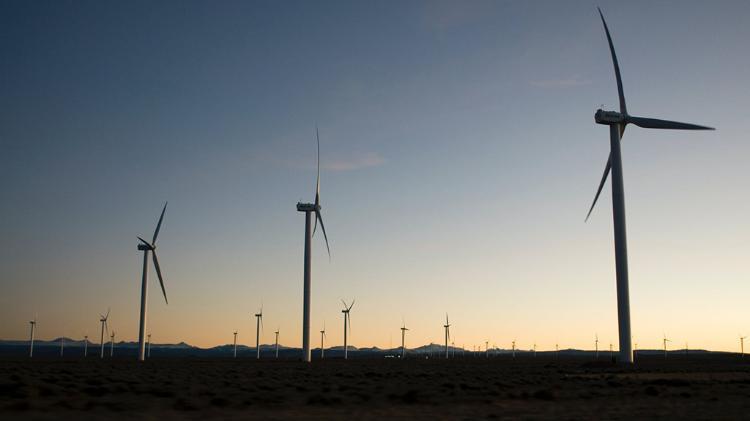A course on the application of Australian standards for allocation of harmonic, flicker and unbalance emission levels, presented by the Australian Power Quality and Reliability Centre.
- Substation Design
- Fundamentals of Distributed Energy Resources
- Integration of Renewable and Distributed Generation
- Application of the NER for Connection of Renewable Energy
- Introduction to PQ of Electrical Supply
- Introduction to Power Systems
- Advanced Quality of Electrical Supply
- Battery Energy Storage
- Application of Australian Standards for Management of Harmonics, Unbalance & Flicker
Application of Australian Standards for Management of Harmonics, Unbalance & Flicker
Course Description
Before connection of large loads or generators, the National Electricity Rules (NER) require action to be taken to ensure that the connections will not have an adverse impact on network quality of supply which essentially includes the disturbances: harmonics, voltage fluctuations and flicker, and voltage unbalance.
It is the responsibility of the network operator to allocate an agreed level of disturbance emission level and it is the responsibility of the connection proponent to ensure that the installation to be connected can meet the emission requirements. In Australia, the most common processes used to specify emission allocation levels are defined in the AS/NZS 61000 series of EMC standards, specifically:
- AS/NZS TR IEC 61000.3.6 for harmonics
- AS/NZS TR IEC 61000.3.7 for voltage fluctuations and flicker
- AS/NZS TR IEC 61000.3.13 for unbalance
This course has been developed to allow better understanding of these standards and the methodologies for allocation of each the specific disturbance emission levels. An optional third day includes examples and discussion of practical implementation of the theoretical components of days 1 & 2.
Course program
Day 1
Day 1 of the course will focus on the following:
- The role of standards and the various categories of documents produced by standardisation bodies
- Voltage unbalance: analysis principles, standards and management
- Harmonics: calculation principles and the role of standards as regards limits, determination of customer emission allocations and compliance assessment
Day 2
Day 2 of the course will focus on the following:
- Harmonics (continues)
- Voltage fluctuations and flicker: analysis principles standards and management
- Case studies illustrating emission determination and analysis for renewable energy generators
- Discussion session
Day 3 (optional)
The optional day 3 of the course includes:
- Modelling considerations for PQ studies
- Generator and network modelling for harmonic emission studies
- Practical examples of the application of AS 61000.3.6
Course Outcomes
At the conclusion of the course participants will:
- Have an understanding of the causes and effects of harmonic distortion, voltage fluctuations and flicker and unbalance and the need to limit their magnitudes in electricity supply networks
- Have an understanding of the current Australian Standards related to power quality and how they work together to maintain acceptable quality of supply
- Understand the challenges in applying the Australian Standards for allocation of harmonics, voltage fluctuations and flicker and unbalance
- Have encountered the problems in the practical application, concepts and methodologies defined in AS/NZS TR IEC 61000.3.6, AS/NZS TR IEC 61000.3.7 and AS/NZS TR IEC 61000.3.13
Who should attend?
This course has been designed to assist those who deal with the allocation of power quality emission levels. The course would be of particular interest to engineers or technical officers working with network service providers or proponents of large loads or generators, particularly renewable energy generators such as solar farms.
Training Investment
The course investment provides for an inclusive industry related training package including course notes. The course fee for the 2-day course is AUD$1770 including GST per person. The fee for Day 3 is $500.
Participants may count course hours towards their continuing professional development requirements.
NOTE: Arrangements for accommodation are the responsibility of participants and costs are not included in the course fee.
NOTE: There is no guarantee that economic participation levels for this course can be achieved. Registrants will be notified 2 weeks prior to course if the course cannot proceed due to insufficient numbers. The program may be changed at any time due to unforeseen circumstances. If the course cannot proceed for any reason, UOW will not accept liability of whatsoever kind for expenses incurred by any person or corporation with the sole exception of the course investment, which will be refunded in full.
Speakers
Emeritus Professor Vic Gosbell has many years experience in the electric power supply industry, having worked on power system stability, power electronics and variable speed drives and power quality. He set up the Power Quality Centre in 1996 and was its Technical Director for nine years. Although now retired, he still contributes to the work of the Centre, particularly in the areas of harmonic management and the development of power quality survey and reporting techniques. Vic is an active member of the Standards Australia technical committee EL-034 (Power Quality).
Professor, School of Electrical, Computer and Telecommunications Engineering
University of Wollongong
Professor Sarath Perera was the Technical Director of the Australian Power Quality and Reliability Centre for the last 15 years. He is also a Professor in the School of Electrical, Computer and Telecommunications Engineering. Professor Perera has over 40 years’ experience in the areas of power quality, distribution system reliability, EMC and power system simulation techniques. He is the Chair of Standards Australia technical committee EL-034 'Power Quality'.
Application of Australian Standards
This course is supported through APQRC teaching staff along with access to a modern laboratory for project work.
Download brochure